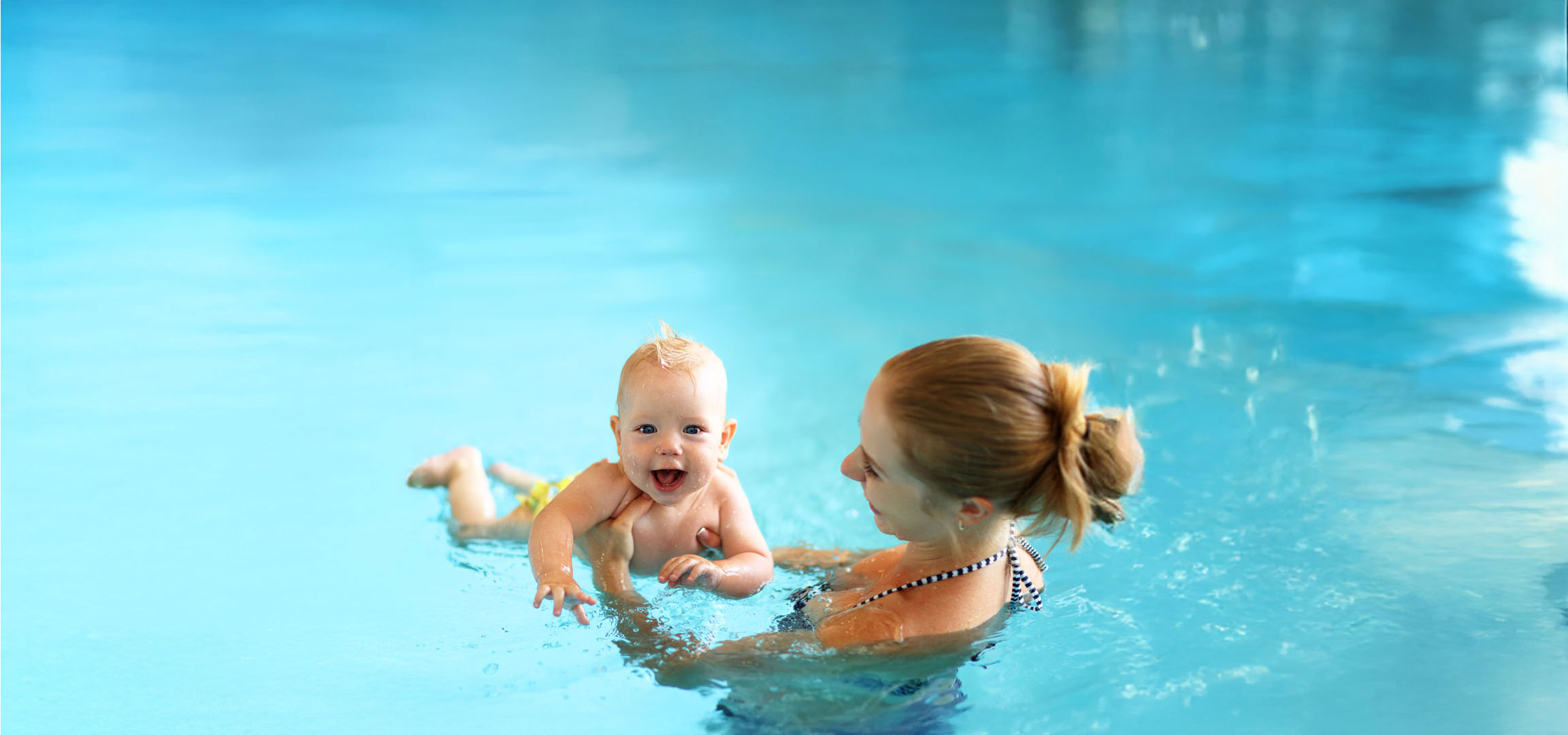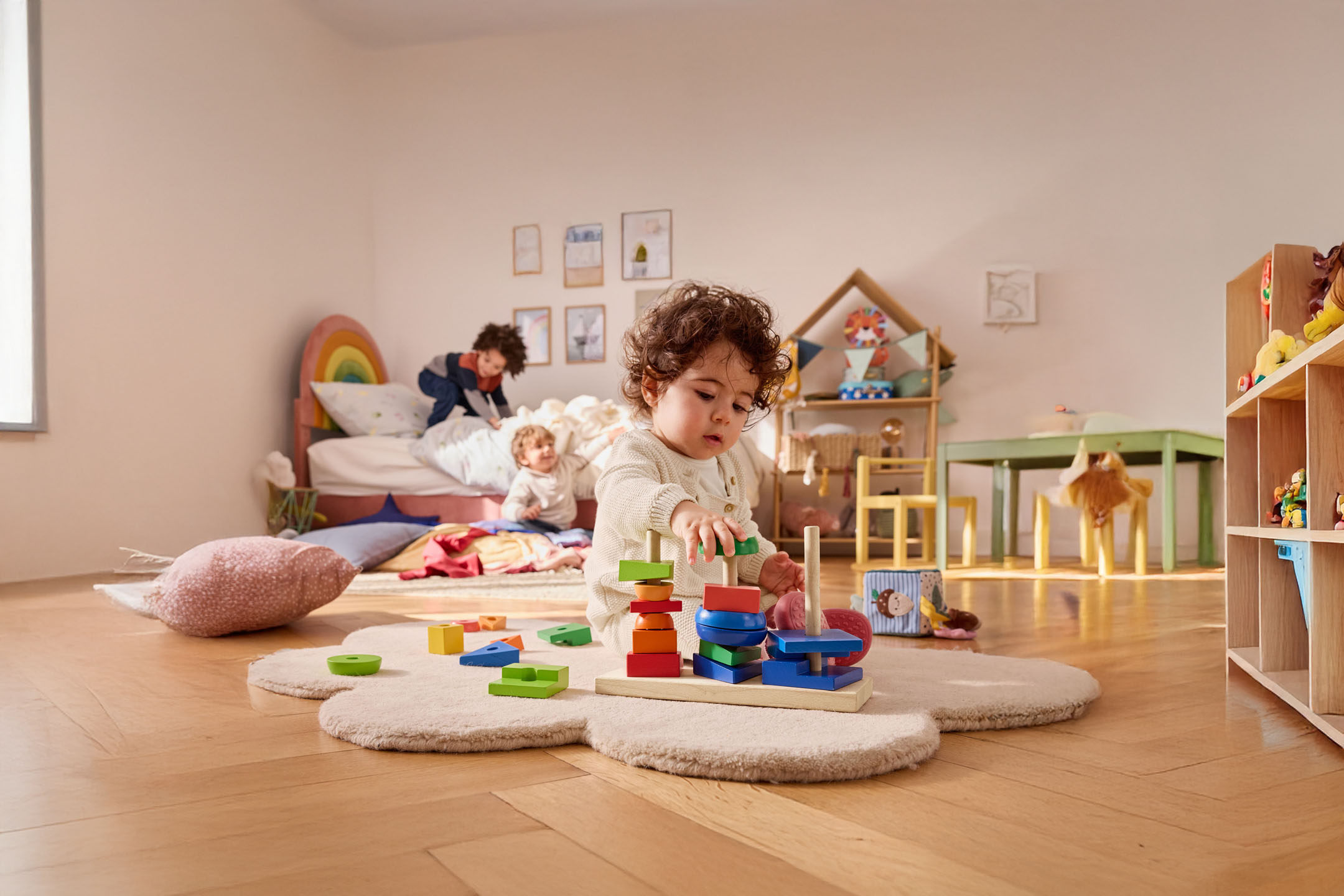Fancy baby swimming? - When you can start
Baby swimming not only strengthens the bond between parent and child but also offers plenty of enjoyment for little ones. In many cases, it has a positive impact on motor skills and cognitive development. To ensure a safe and enjoyable experience, baby swimming courses are normally led by certified swimming teachers.
Baby swimming - the most important tips and recommendations
What does “baby swimming” mean?
“Baby swimming” or “infant swimming” refers to special courses in which parents and children play and move together in the water. This form of water exercise has become increasingly popular since the 1960s, as it promotes the motor skills of babies and has a positive effect on the mother's postnatal recovery. Many babies can even paddle when held in a prone position. However, “baby swimming” does not mean swimming lessons for babies.
Who offers swimming lessons for babies and how much do they cost?
Most local swimming pools ofter a wide range of swimming lessons for different age babies and children. For more information on times and costs, check your local swimming pool website.
When to start swimming?
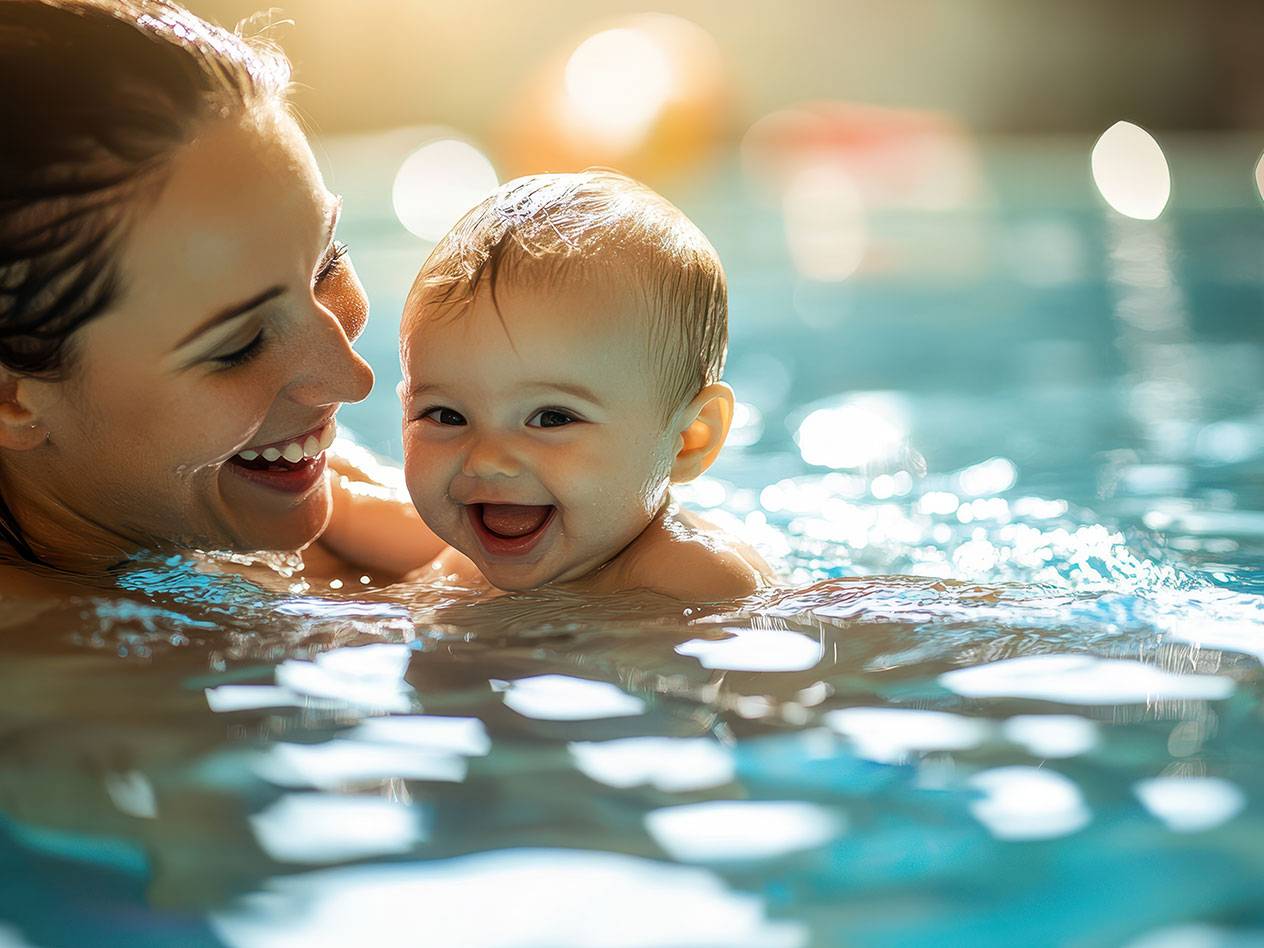
Many babies love the water. Researchers believe it reminds them of their time in the womb. And as we know from us adults: water has a calming and soothing effect. However, there are also reasons that why some parents opt not to take their baby swimming. For example, your baby could be sensitive to chlorine or catch a cold.
Baby swimming - yes or no?
Advantages
- Promotes the baby's motor and cognitive skills
- Fun activity for parent and baby
- Strengthens the bond between parent and child
- Due to the conditions such as under weightlessness, the baby can playfully try out new movements
- Early experience with water increases self-confidence when learning to swim later on
- Enables parents and child to meet new families
Disadvantages
- Chlorine found in swimming pool water can cause allergies
- Babies swallow water and ingest bacteria and germs that can lead to gastrointestinal infections, respiratory diseases or middle ear infections.
Baby swimming - when are we allowed?
When exactly you and your little one should start baby swimming depends on various factors. These include, for example, physical maturity and whether your baby has an increased risk of allergies. Temperament also plays an important role – every baby reacts differently to so much water around them.
When to start swimming?
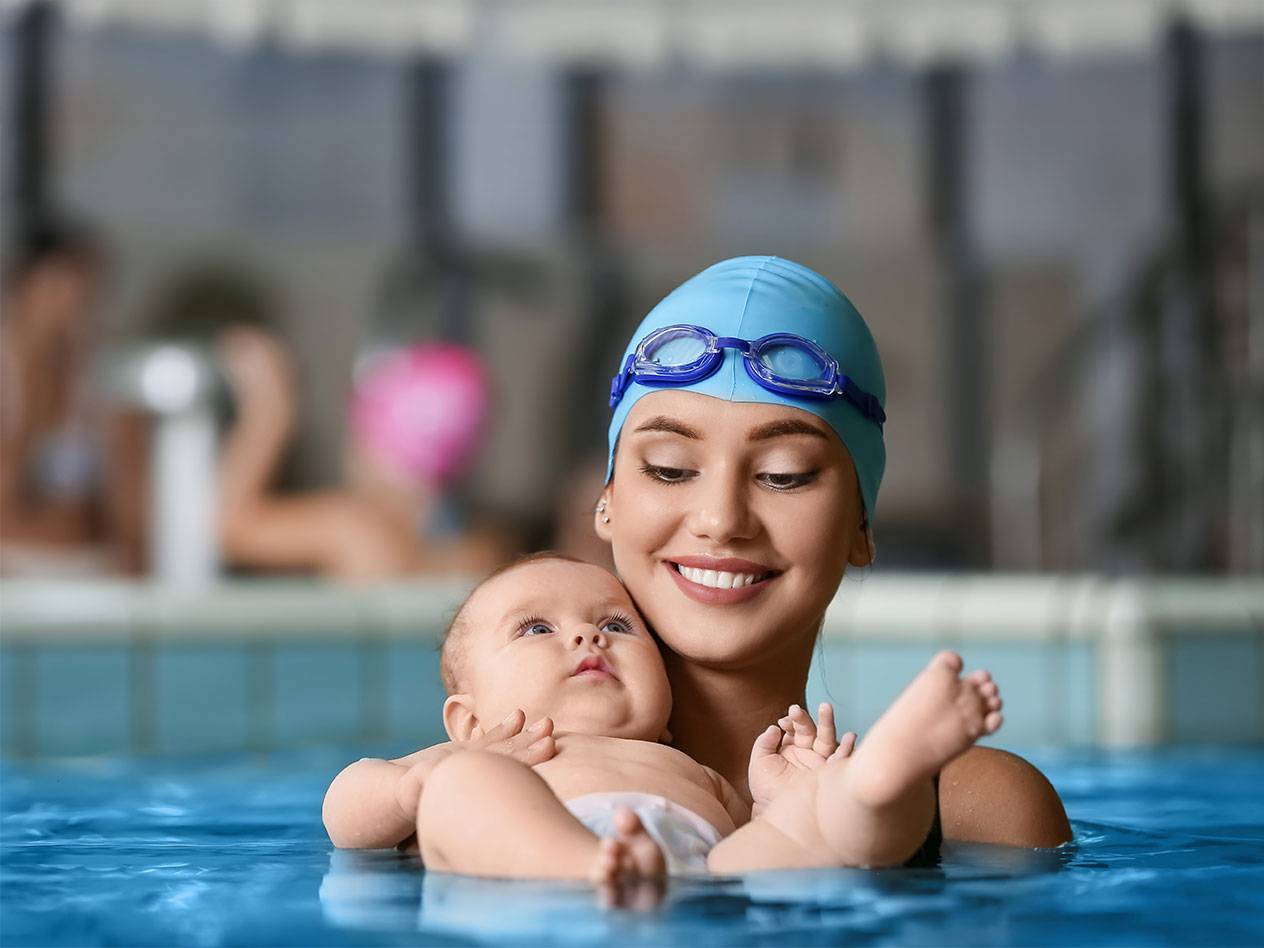
Most parents start swimming courses between the fourth and sixth month of their baby's life. Then the baby can already regulate its body temperature to a certain extent. However, this varies from child to child and of course also depends on whether your baby was born regularly or prematurely. If in doubt, seek advice from your GP or your midwife.
Pool temperature difference
Slowly get your baby used to the cooler water temperature that is common in most swimming pools by letting the bath water at home get cooler from time to time.
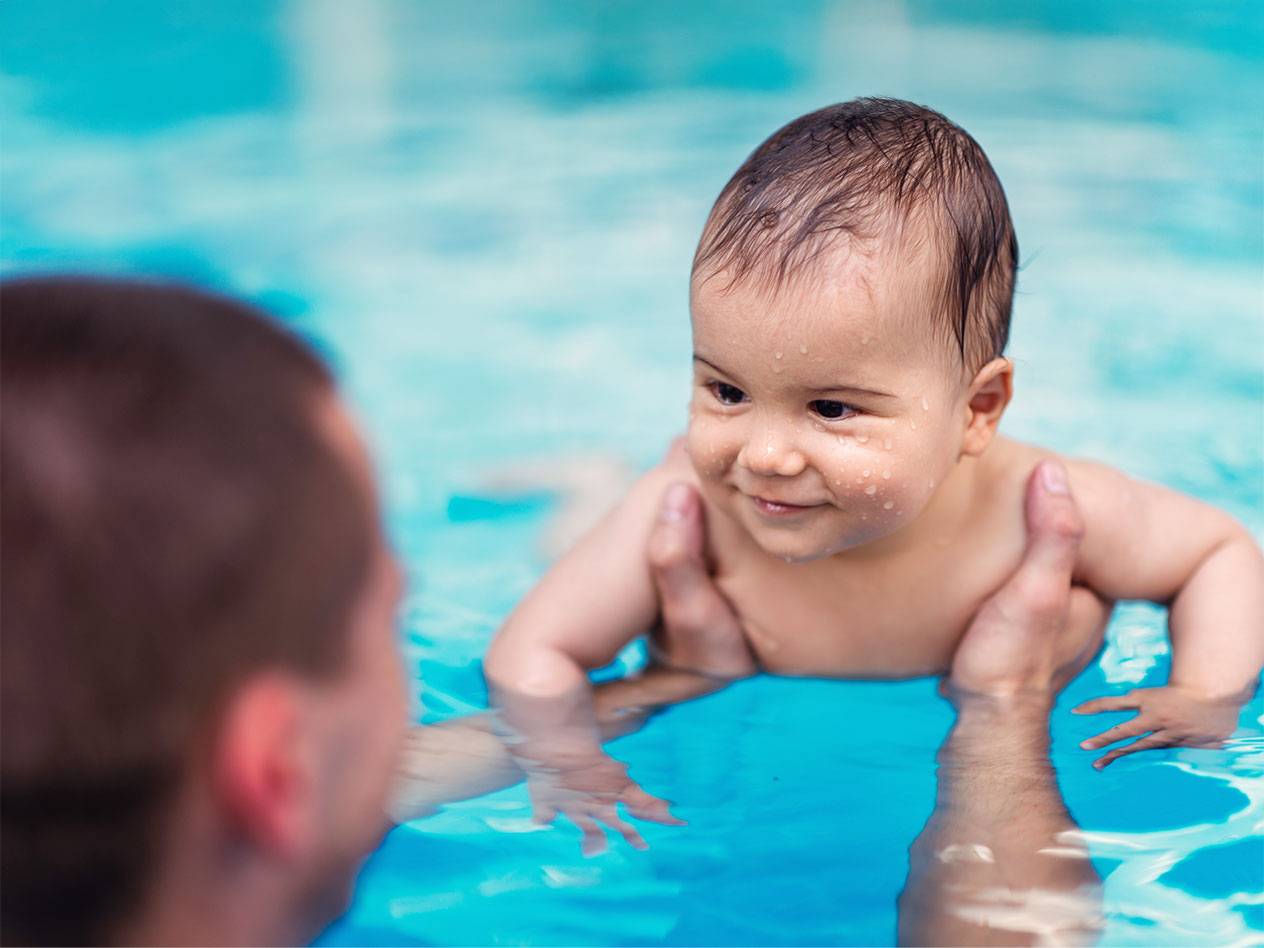
Physical development as a further factor
Babies between four and six months are becoming more and more active and can usually keep their heads up for a short time in the prone position. This is an important prerequisite for you to be able to use grips in baby swimming where your baby lies with its belly on the water. In most cases, the instructors will recommend that you alternate between supine and prone positions again and again so that it doesn't get too strenuous for your little one."
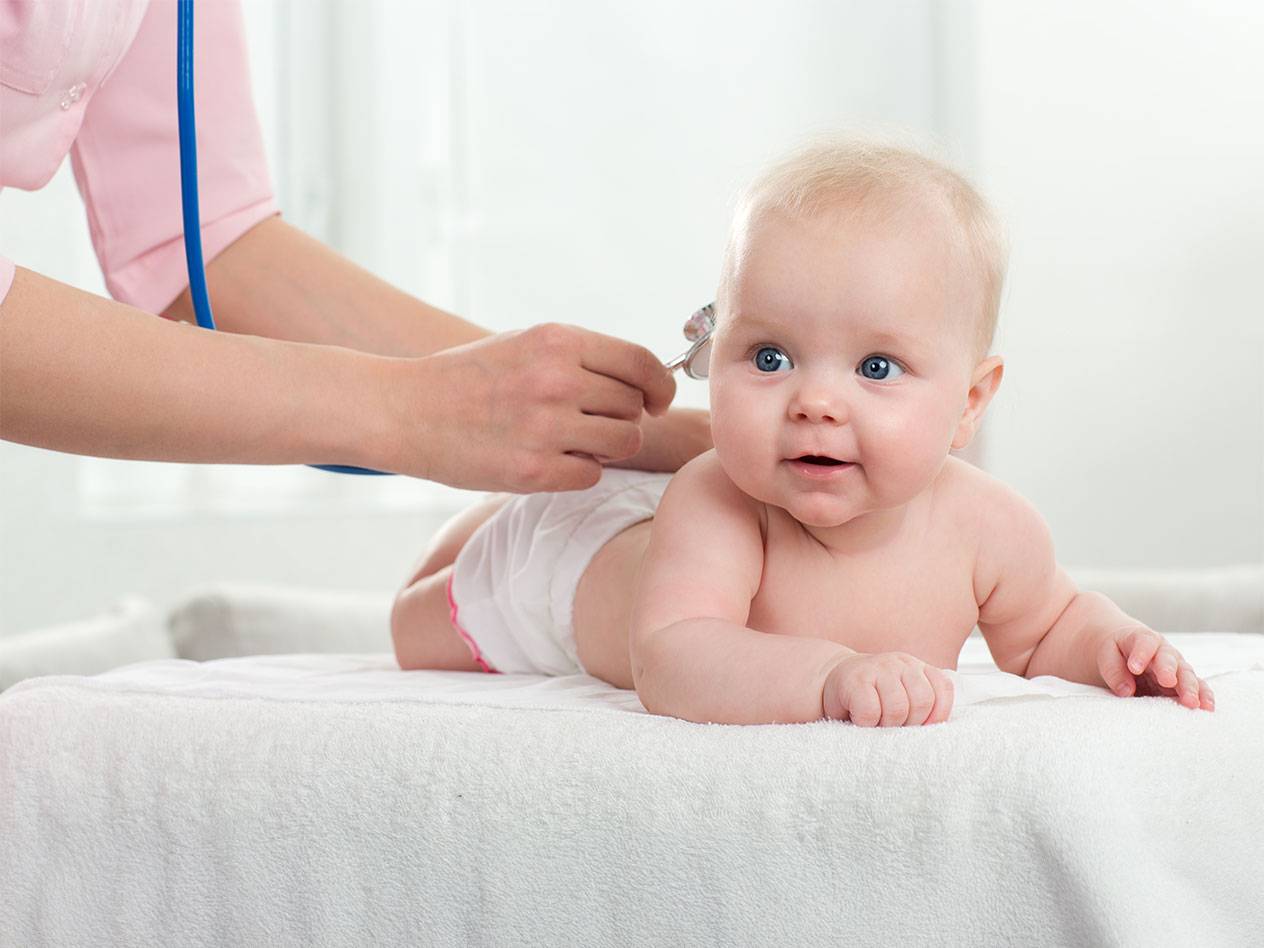
When the GP should be consulted
If unsure if your baby can start swimming lessons please check with your GP or midwife.
Swimming Essentials
- Swim nappies in the correct size
- Hooded towel or bathrobe
- Possibly some bath toys
- Post swimming snacks
- Shampoo/body wash and a mild body lotion
- Baby swimming costume or trunks
